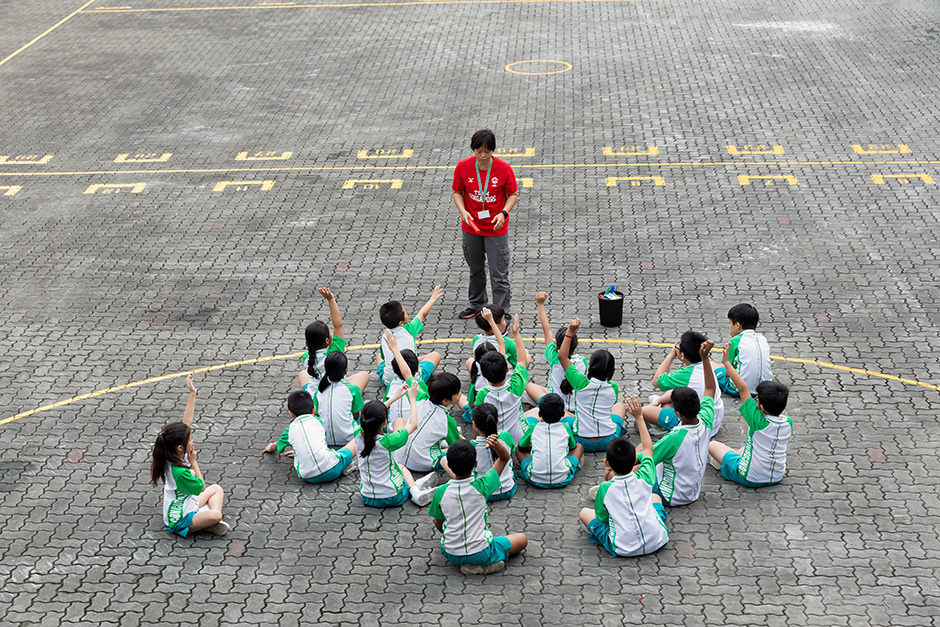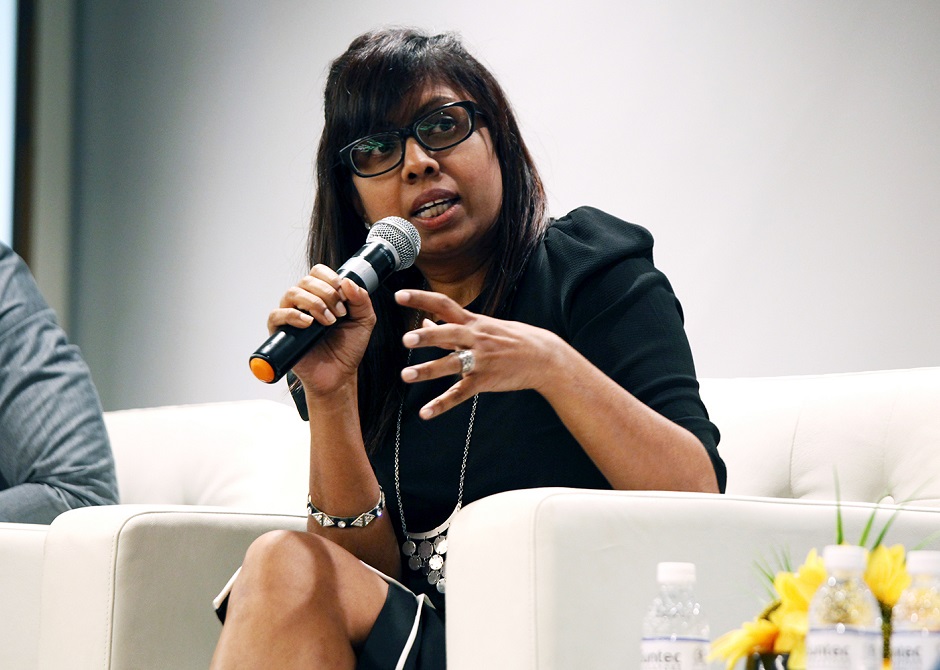Some weeks ago, my family was home trying out a new dance video game in front of the TV. The premise of the game is simple: The better you can mimic the moves on screen, the higher your score.
We were enjoying our family workout, especially watching my husband attempt the dance moves, but the fun was not for long. My younger daughter, who is five and the littlest in the family, started to cry because her score was lower compared with the rest of us. She threw a huge tantrum, bringing the activity to a halt.
Competition can bring out the best and worst in us. Even very young children are not spared the competitive instinct – it is nature’s way of ensuring our survival.
As parents, we want to see our children do their best and will do our utmost to help them climb to the top. We pride it as an Asian virtue, that parents value education and take care of their children, and for our children in turn to respect their elders, do their bidding and work hard at their studies. Surely, this should be a recipe for a happily ever after?
However, we are seeing the emergence of a quiet phenomenon around us – of young people in Singapore who talk about the crushing weight of expectations and concerns about their mental well-being. And they are not alone. In China and other East Asian nations, there are young people retreating from competition, giving rise to the “tang ping” (躺平) or “lying flat” movement in rebellion against the rat race.
When we analyse the factors that have given rise to this development, many explanations pop up that apply across all East Asian economies. Slowing economic growth, intense competition for job opportunities, rising cost of home ownership, excessive pressure in the education system, rising burden of caring for the elderly – all of which weigh heavily on the young.
In the face of dwindling prospects for their children, parents double down by engaging in a “nuclear arms race” to equip their children with higher chances of doing better than others.
The children, meanwhile, face new challenges brought on by online exposure, on top of the usual challenges of growing up, such as emotional stress, peer pressure, friendship and identity issues, and parental and societal expectations.
Faced with increased pressure from all fronts, some suffer burnout or choose to “lie flat” – a silent revolt characterised by choosing to do nothing.
Language of achievement starts in the home
Policymakers in Singapore know that the fundamental solution is to deliver economic growth; as the Chinese saying goes, “shui zhang chuan gao” (水涨船高), which means “when the tide rises, all boats will rise with it”.
Government agencies are working closely with industry partners to spur economic transformation, while equipping workers with relevant training to best take on new opportunities. This is critical to our success as a nation, but it may ring hollow to our children if they cannot find their place in this portrait.
We can help them by working collectively as a society to give them a sense of hope, help them build resourcefulness and resilience, and redefine how we all view success and happiness.
For a while now, the Ministry of Education (MOE) has been promoting the idea of multiple pathways of success, and increasing porosity between the pathways; that while grades are important as they help in monitoring progress and build rigour and discipline of the mind, the pursuit of academic excellence should not be taken to the extreme of chasing every last point.
But this requires the whole of society to buy into the movement, starting with families. Day in, day out, family members are the ones whose words and actions determine directly how children view success.
Do we make academic success and paper qualifications sound like the be all and end all? Do we use fear and doomsday scenarios to scare our children into working hard for their studies? Do we inflict our own childhood experience with education on our children when education practices may have changed over the years?
Do we superimpose our unrealised dreams and aspirations on our children, or make unnecessary value judgments on professions when jobs and workplaces may no longer be what we understood them to be?
We should consider how it affects a child’s well-being when we narrowly define success to how well the child scores in a school curriculum exam. Not everyone can be in the top 20th percentile for an examination, and this is made worse when some parents define success as being in the top fifth percentile.
By default, the majority of students fall outside these percentiles, and they can end up feeling inferior and hopeless. Anecdotally, there are also those who score in the top bands who live in fear of not being able to keep their spots in the next round. So even the top scorers do not feel better about themselves.
Furthermore, as a society, do we accord respect to people based on their market-determined economic value? Do we celebrate work that comes from the heart, good character, inner strength and fulfilment, or do we consider these values less important as there is seemingly no economic value pegged to them?
And who is to say that the future economy will not be made up of more jobs and industries that require new skills, talents and orientations than we know of currently?
By widening the conversations and avenues for what counts as success and excellence, we create motivation and more opportunities not only for our children but also for all of us to strive to perform better in different domains and at different junctures of our lives. I believe industry and society as a whole stand to gain from this shift.
In a webinar titled A Future Beyond Grades organised by MOE which I participated in last November, parents asked what qualities employers look for in candidates.
Many Singaporean parents are very practical people who think good grades lead to good jobs. Panellists at the webinar said that while it is true that certain skills are needed for some industries, there are also many other attributes, such as resilience, dexterity in the face of new challenges, emotional quotient, and collaborative skills, that employers look for.
These are skills that are developed outside the classroom, so we need to expose our young to varied experiences to develop these traits. MOE will be organising more of these webinars to keep parents updated on hiring and employment trends, as well as the traits that employers desire in their workers.
Is society setting our young up to do their best?
This brings me to the next point on resilience. In recent engagements with employers, a common concern is the perceived lack of resilience among young employees. A media company shared how young hires seemed unable to manage the stress of working with deadlines or demanding customers.
But rather than placing the blame squarely on the young hires, a senior executive from the media company told me that she will be conducting a human resource course on empathy for staff to understand how better to communicate with the young workers of today. I agree with her. We need to help our children develop resilience, and at the same time find new ways to motivate and encourage them.
Early exposure to overseas experiences and local or foreign internships can be helpful in developing skills among our young people to respond to real-world situations. While Covid-19 has put paid to many overseas opportunities, many schools and ground-up organisations, such as the Asia-based youth group The Young SEAkers, are still finding ways to establish overseas connections and to create opportunities for young Singaporeans to see beyond their immediate comfort zones.
Volunteering and helping the vulnerable in Singapore can also help develop a sense of grit and resilience among our young. Parents should see such activities as complementary to the child’s academic learning and not a distraction from their studies. The skills and attributes they pick up through these volunteering activities may well be what their prospective employers are looking for.
Separately, employers can also explore new ways to connect and communicate with young employees who seek more of life beyond meeting basic needs, and want to see a fairer and kinder society.
In a recent engagement with financial securities firm CGS-CIMB, its group CEO, Ms Carol Fong, described how the firm’s partnership with the Community Chest to provide opportunities for its customers to donate conveniently and spontaneously was a project that brought many of its young employees together.
The employees were heartened that they could, while working in a financial services firm, encourage customers to do good together and help those in need. I met some of these young employees who hosted the event and took care of all the arrangements while smiling from their hearts.
This highlighted to me the desire by young people to see their workplace as not only a profit-making enterprise but also one that has a greater societal purpose and, indirectly, a concern for the welfare of its staff.
Lastly, we must continue to give our young the confidence that Singapore will continue to be a place where they can find and achieve happiness. Even as we support our young in their aspirations and pursuits, we must also consider the ingredients that go into having a happy life.
In many studies conducted on happiness, strong relationships within the family and with friends are cited as important determinants of happiness. A sense of gratitude and appreciation of the present can also engender a sense of happiness.
This brings me back to the afternoon when my daughter’s unhappiness with her score nearly ruined our fun afternoon of exercise. I decided to take her aside and explain how she could look at the game differently.
Rather than focus on winning and losing, how about adopting a learning attitude, to see the game as a teacher and all of us as dance students? Some will pick up the moves faster, others less so, but all of us are there to enjoy the game and do our best.
After removing her lens of scathing judgment, my daughter seemed more content to work on her moves. She grew more confident in playing the game, and was happier to cheer us on too.
There is a lot that we can do together to support our young’s well-being – to give them hope, help them develop resilience, and give them the confidence that happiness is within their reach. Let us work together because we know we love them so much.
Sun Xueling is Singapore’s Minister of State for Education and Minister of State for Social and Family Development.
This article was first published in The Straits Times.






